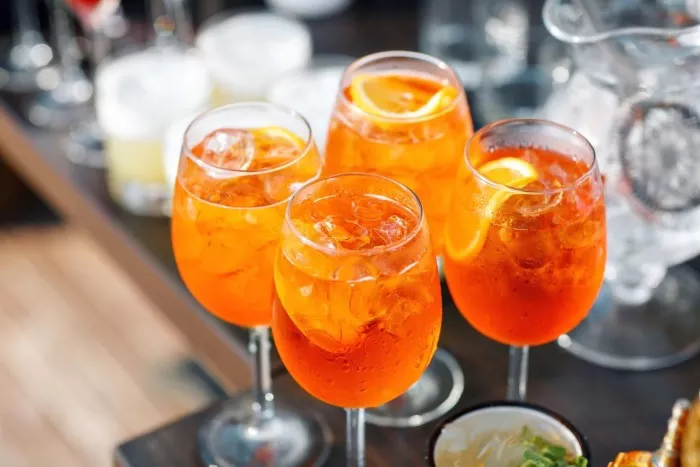Bitters, the unsung heroes of mixology, have been an essential ingredient in cocktails for centuries. Their unique ability to balance flavors and add depth to drinks makes them indispensable behind the bar. But what cocktails use bitters, and how do they elevate these concoctions to new heights?
A Brief History of Bitters in Cocktails
The history of bitters dates back centuries, originating as medicinal tonics infused with herbs and spices. However, their transition into the world of cocktails began in the early 19th century. Jerry Thomas, a pioneering bartender, is credited with popularizing bitters in drinks, notably in classics like the Manhattan and the Old Fashioned. Since then, bitters have become a staple ingredient in numerous cocktails, enhancing their complexity and taste.
Classic Cocktails Enhanced by Bitters
When pondering what cocktails use bitters, classic concoctions immediately come to mind. The Old Fashioned, arguably one of the most iconic drinks, relies on bitters to complement the sweetness of bourbon or rye whiskey. Angostura or aromatic bitters are typically used, adding a subtle complexity and balancing the cocktail’s flavors.
Similarly, the Manhattan cocktail, composed of whiskey, sweet vermouth, and bitters, owes its well-rounded taste to the inclusion of bitters. The marriage of these ingredients creates a harmonious blend of sweet, bitter, and aromatic notes that define this timeless beverage.
Modern Mixology and Bitters
As mixology evolved, bartenders began experimenting with new flavor profiles, leading to the creation of innovative cocktails incorporating bitters. The Negroni, a revered cocktail, harmonizes gin, Campari, sweet vermouth, and a dash of bitters. The addition of bitters elevates the drink, adding complexity and balancing the contrasting flavors of the ingredients.
Furthermore, contemporary mixologists have reimagined classic recipes by introducing variations that incorporate different bitters. For instance, the use of orange bitters in a traditional Martini or the inclusion of chocolate bitters in a Whiskey Sour brings a modern twist to beloved cocktails, showcasing the versatility of this essential ingredient.
Exploring Bitters Beyond Traditional Cocktails
Bitters aren’t confined to just classic or modern cocktail recipes. They have found their way into various other drinks, both alcoholic and non-alcoholic, amplifying their flavor profiles. Mocktails like the Virgin Mary or the Shirley Temple benefit from a few drops of bitters, enhancing their depth and complexity despite the absence of alcohol.
Moreover, bitters aren’t limited to just cocktails and mocktails. They’ve ventured into the realm of culinary delights, finding their way into desserts, sauces, and even coffee. A dash of bitters in chocolate-based desserts or a few drops in a vinaigrette can add an unexpected layer of flavor, showcasing their versatility beyond the bar.
See Also: hardest cocktail to make
Crafting Your Own Bitters-Infused Creations
With the growing trend of home bartending and DIY culture, making bitters at home has become increasingly popular. Crafting homemade bitters allows enthusiasts to experiment with unique flavor combinations, tailoring them to their taste preferences. From citrus-infused bitters to herbal or spicy variations, the possibilities are endless.
One can start by selecting a base spirit, such as high-proof vodka or whiskey, and infusing it with a variety of herbs, spices, and botanicals. Common ingredients like citrus peels, cinnamon, cloves, and gentian root are often used to create homemade bitters. The infusion process may take weeks or even months, but the end result is a personalized concoction ready to elevate cocktails from the comfort of home.
The Future of Bitters in Mixology
As the cocktail renaissance continues, bitters remain a fundamental element in pushing the boundaries of mixology. Bartenders and enthusiasts alike are continually exploring new ways to incorporate bitters into their creations, sparking innovation and creativity behind the bar.
Moreover, the growing interest in natural and artisanal ingredients has led to an upsurge in craft bitters production. Artisanal bitters, handcrafted in small batches with high-quality ingredients, offer unique flavor profiles and inspire mixologists to experiment with novel combinations.
In Conclusion
Bitters have cemented their place as indispensable ingredients in the world of cocktails. From classic concoctions to modern innovations, these aromatic elixirs enhance flavors, add depth, and elevate the drinking experience. Whether in traditional recipes or experimental libations, the question of what cocktails use bitters showcases the enduring significance of this humble yet mighty ingredient in mixology.


